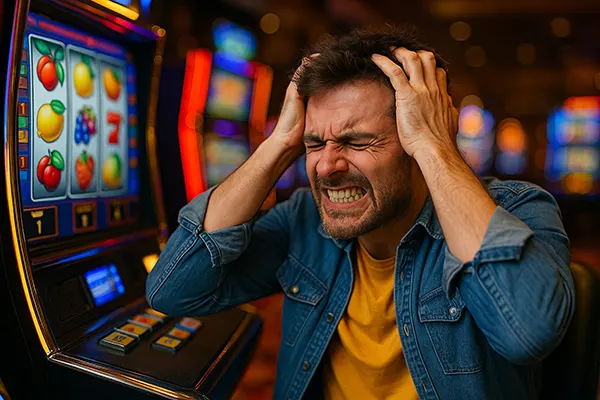Psychological Portrait of a Gambler: What Drives the Urge to Play?

Gambling is more than a game of chance. Behind each bet lies a complex interplay of emotions, habits, and deep-seated psychological patterns. Understanding what motivates individuals to seek risk and reward through gambling helps shed light on human behaviour and the vulnerabilities that come with it.
Motivational Triggers and Emotional Needs
The psychological appeal of gambling often originates from the promise of emotional gratification. Many players are driven by the thrill of unpredictability, which can stimulate the brain’s reward system in much the same way as substances like sugar or caffeine. This excitement can become addictive, not just due to potential winnings, but from the feeling of being ‘alive’ in the moment.
Additionally, for some individuals, gambling serves as an emotional outlet. Those experiencing stress, anxiety, or depression might turn to gambling as a form of escapism. It becomes a temporary reprieve from reality—a distraction that masks emotional distress, albeit briefly and with considerable risk.
Another common motivator is the illusion of control. Despite knowing the odds are often unfavourable, some players believe they can influence outcomes through skill, strategies, or patterns. This cognitive distortion reinforces repeated behaviour, even after significant losses.
Social and Environmental Influence
Gambling behaviours are not formed in isolation. Social circles and upbringing play a substantial role. A person raised in an environment where gambling is normalised may perceive it as a casual or even necessary aspect of adulthood. Social reinforcement—such as praise for wins or empathy after losses—can further cement these habits.
Moreover, the design of many gambling venues or sites encourages prolonged engagement. Bright lights, celebratory sounds, and rapid game cycles are engineered to sustain attention and limit reflective decision-making. The result is a continuous loop of stimulation that makes walking away increasingly difficult.
Online accessibility also heightens the risk. Without physical barriers or opening hours, gambling becomes a 24/7 option. The convenience masks the financial and emotional consequences, especially for vulnerable individuals.
Personality Traits and Risk Propensity
Certain personality traits are more commonly associated with gambling behaviour. Impulsivity, for instance, is a key predictor. Impulsive individuals often act without thoroughly evaluating consequences, making them more susceptible to risky behaviour and financial instability.
Another trait often observed is sensation-seeking. This refers to the pursuit of new, intense experiences, even when they come with significant risk. The adrenaline rush of placing a high-stakes bet aligns closely with this need for stimulation and novelty.
Additionally, competitiveness can play a role. Some gamblers are motivated not by the activity itself but by the desire to ‘beat the system’ or outperform others. For these individuals, gambling becomes a measure of personal skill or dominance, rather than a form of recreation.
Cognitive Biases and Misconceptions
Gamblers frequently fall victim to specific cognitive biases that distort reality. One of the most common is the ‘gambler’s fallacy’—the belief that past outcomes influence future ones. For instance, after a streak of losses, a person might believe they are ‘due’ a win, leading to increased and often reckless bets.
Another widespread belief is the ‘illusion of control’, where players overestimate their influence on random events. This might manifest in the selection of specific machines, numbers, or strategies thought to be ‘lucky’, despite the randomness of outcomes.
Confirmation bias also plays a role. Players tend to remember wins more vividly than losses, reinforcing a skewed perception of success. This selective memory feeds the notion that gambling is profitable or manageable when evidence often suggests otherwise.

The Role of Mental Health and Coping Mechanisms
Psychological vulnerability significantly influences gambling behaviour. Individuals with undiagnosed or untreated mental health conditions—such as anxiety disorders, depression, or trauma-related issues—may be more prone to developing problematic gambling habits.
In these cases, gambling often acts as a maladaptive coping mechanism. It provides a temporary sense of relief, excitement, or self-worth, which masks underlying emotional pain. However, the cycle of chasing losses or recreating highs can exacerbate mental health struggles and lead to long-term harm.
Importantly, co-occurring issues such as substance use can compound the risk. Alcohol or drug use may impair judgement and reduce inhibitions, increasing the likelihood of impulsive or irrational gambling decisions.
Intervention and Prevention Strategies
Effective intervention begins with education. Awareness campaigns and public health messaging can help people recognise the signs of gambling-related harm and seek support early. Emphasising the risks, rather than glamourising success stories, shifts the narrative toward realistic expectations.
Support services such as counselling, financial therapy, and peer networks play a vital role in recovery. Accessible, non-judgemental help encourages individuals to address their behaviour without fear of stigma or shame.
On a broader scale, responsible regulation is essential. This includes limiting advertising, enforcing self-exclusion tools, and implementing strict verification processes to prevent underage access. By reducing exposure and impulse opportunities, society can better protect at-risk individuals.
